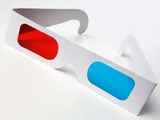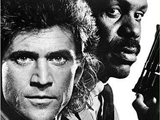
Eich Motor Co.
Us Info | 2013-02-07 13:44

History
In 1853 Joseph Eich, a Bavarian from Regensburg, became one of the first settlers in St. Cloud. He was here in a log cabin in 1854 when he helped welcome and shelter the Edelbrock and Wilson families, who had traveled by steamboat from St. Paul. Joseph and his wife, Creszentia, homesteaded a farm in St. Wendel in 1858, and raised 12 children.
The youngest was Alois A. Eich, known as "A.A.", the first of four generations of the Eich family to run Eich Motor Co. In January of 1897, A.A. and Michael Bisenius formed a partnership to sell farm implements, representing McCormick Harvesting machinery and Studebaker wagons and buggies. The next year they bought several lots in downtown St. Cloud on Seventh Avenue, just north of Saint Germain Street. In 1898 the first unit of what is now the Meyer building (St. Cloud Business Center) was built, called the "machine shed." It still stands as the north half of the present building.
STUDEBAKER and the beginning of the Automotive Era
In the late 1890's automobile designers were working with steam, gas and electricity. The first Studebaker horseless carriage came out in 1902, and was called the "Electric Runabout." In 1904 they produced their first gasoline car in conjunction with the Garford engine company. And then, in 1908, Studebaker teamed up with the Everett-Metzger-Flanders Co. in Michigan. E.M.F. Flanders were the first cars manufactured by Studebaker.
After buying out his partner in 1901, and having ignored electric engines, A.A. was convinced by a persuasive Studebaker salesman to stock a gasoline engine vehicle. The first car was sold to O.F. Metzroth, with a delivery date of March 13th, 1910. The car was an EMF Standard with "M" top; glass front, and Jones speedometer. The total sale amount was $1,413. Nine "horseless carriages" were sold by A.A. Eich in 1910.
In 1921 the business became A.A. Eich and Son, when Milton joined the firm after graduating from St. John's University. 1923 was an especially good year for Studebaker with the introduction of new six cylinder vehicles - the "Big Six", the "Special 6" and the "Light 6" - the cars that made Studebaker famous. Studebaker sold 150,000 cars in 1923, and A.A. Eich and Son sold 77.
And then, in the summer of 1929, the stock market was at an all-time high. In October stocks began to drop, and banks and corporations nervously started to call in loans. Stockholders panicked, and the market crashed. The Great Depression had begun.
Studebaker faltered, despite efforts to reenter the low-priced automobile market with the "Rockne." Studebaker declared bankruptcy and was placed in receivership in 1933. Two years later Studebaker became the only automobile manufacturer to be released from receivership.
The 1940's brought war abroad, and for Studebaker, foreign orders for war supplies. At the end of January, 1942, all passenger car production was stopped by United States government degree, completely shutting off supply. Studebaker began producing trucks and engines for aircraft.
After surviving the great depression and the bankruptcy of Studebaker, A.A. Eich and Sons now faced not only vehicle and gas shortages, but labor shortages. Most employees left to serve in the war.
Fortunately, before the end of the war, Studebaker sought a strategy to be the first car company out of the gate with new styling and an all-new model for post-war sales. Other car companies had not retooled as quickly, and in 1950 Studebaker achieved its peak production of 268,229 cars. The popular "bullet nose" styling, perhaps the most famous design from Studebaker, was added in this year. This glory was not to last, however, as Studebaker's sales began declining in 1951 and 1952. It was customary during this period to change vehicle body styles every year, and Studebaker could not compete with the financial rigors of the Big Three's yearly styling changes.
At that time, downtown St. Cloud was growing, and there was no room to display any used vehicles. Described by Automotive News as a "modern $65,000 building," the company relocated to its present location at 1931 Division St. in 1957. The company was then renamed Eich Motor Co., and the Mercedes franchise began at this location.
Daniel Eich joined the firm shortly thereafter, and was influential in establishing a market in imported vehicles. A sports car and roadster fan, Dan led the company towards such brands as MG, Triumph, Austin-Healy, Hillman, Borgward, and finally, Mercedes. St. Cloud's first imported car was probably a BMC (British Motor Car.)
VOLKSWAGEN enters the United States
It was during this time in Germany that Volkswagen, or the "peoples' car" was gaining momentum. Just before the war the German government was set to introduce a civilian car. After the war, the British took control of the Wolfsburg plant in their zone of occupation. Needing transportation production because of heavy war damage, the British oversaw the post-war production of vehicles. The cars developed a reputation for simplicity and reliability with a rugged demeanor, having been designed to travel over war-damaged roads or lack of roads.
Demand for the VW Beetle was tremendous for the next decade, and in 1955, as the first VW imports hit America, Daniel Eich, the grand-son of A.A. Eich, started his quest for the VW franchise. In 1960, as VW produced four million Beetles, Eich Motor Co. became the 5th VW dealership in the state of Minnesota.
Volkswagen experienced its peak years in the 1970's. The Beetle continued to be popular because of its value and reliability. It was a severely inflationary time, and President Nixon imposed price controls. Our dependence on foreign oil grew, and our reserves diminished. In October of 1973, the OPEC oil embargo caused gas prices to increase by 70%. Small cars were beautiful. Volkswagen produced durable, practical, fuel stingy and safe vehicles that appealed to the 1970s buyers. In the late 1970s VW began selling a diesel vehicle that was so popular that nearly all of them were sold before they were even produced.
Mazda
Intrigued by a new type of rotary engine, Daniel Eich associated with the Hiroshima-based automobile manufacturer, Mazda, in 1975. Mazda produced both rotary and piston engine vehicles. The rotary, (Wankel), engine became known for its’ power and smoothness. A lightweight and compact rotary engine has the equivalent power of a standard six cylinder engine. The rotary engine operates with spinning rotors and as a result requires far less parts than a conventional engine and can operate at a much higher rpm.
The Mazda piston engines became well known for their endurance, economy and reliability. During the fuel crunch of the late 1970s, the fuel- saving Mazdas gained huge popularity.
Volkswagen's Resurgence in America
In 1998 VW began producing the New Beetle, a retro restyled Beetle. The New Beetle came very well equipped and was also the first Beetle with a water cooled engine. The excitement with the New Beetle pushed Volkswagen sales way up and re-ignited the brand. VW has continued to maintain and grow its popularity by providing new models, redesigning existing models and by providing vehicles with a true European feel. In 2003, ground was broken to build a new Volkswagen store location at 1931 W. Division St. across 19 1/2 from the original Division Street location.
Today, Eich Motor Company is a growing and landmark business in St. Cloud, MN. We invite you to see what makes this company special. Many of our employees have been a part of the Eich Motor Company family for several decades. Our continued success is a sign that our customers appreciate the hard work and dedication we’ve exhibited in our daily operations, the devotion to community involvement, and award-winning representation of the Volkswagen and Mazda brands. In their February 2009 issue, Car and Driver recognized Eich Motor Company as the 9th oldest dealership still in operation in the United States.* “I don’t know if people know what a minority we are,” says Linda Eich DesJardins, President of Eich Motor Company and Great-Grand Daughter of Alois Eich. “There aren’t many family-owned automobile dealerships still in existence today.”
Share this page



















